The Well-Tempered Ear
Superstar maestro Gustavo Dudamel to leave LA for the New York Philharmonic
2 Comments
PLEASE HELP THE EAR. IF YOU LIKE A CERTAIN BLOG POST, SPREAD THE WORD. FORWARD A LINK TO IT OR, SHARE IT or TAG IT (not just “Like” it) ON FACEBOOK. Performers can use the extra exposure to draw potential audience members to an event. And you might even attract new readers and subscribers to the blog.
By Jacob Stockinger
It will probably be the biggest music news story of the year, perhaps even the decade.
Gustavo Dudamel (below), the Venezuelan-born maestro of the Los Angeles Philharmonic, will become the music director of the New York Philharmonic starting in 2026.
The news was announced late yesterday afternoon on both coasts. The New York Philharmonic post is probably the most prestigious music post in the United States, a podium once occupied by Gustav Mahler, Arturo Toscanini, Leonard Bernstein, Zubin Mehta and Kurt Masur.
In what one imagines is a very, very expensive coup — the financial terms were not disclosed — the New York Philharmonic recruited the 42-year-old superstar maestro who is known for giving passionate and fiery performances and for innovating music education programs, both of which have brought in bigger and younger audiences.
He also built a reputation for championing new music, Latin music and musicians of color. (In the YouTube video at the bottom, you can hear Dudamel conducting Mexican composer Arturo Márquez’s Danzón No. 2, a Latin American piece he made famous and which is now often used by other orchestras on full programs or as an encore. In the video, he is conducting the Simón Bolivar Youth Orchestra, the senior orchestra of “El Sistema” and the post that Dudamel held before heading to Los Angeles.)
Dudamel has guest conducted the New York Philharmonic more than two dozen times. The musicians there have greeted him warmly and enviously, especially since their CEO Deborah Borda originally signed Dudamel to the Los Angeles post in 2009 when he was 26.
Born into a musical family, Dudamel himself became a professional musician by rising through the ranks of “El Sistema,” the national youth music organization in his native country. He studied violin and composition before turning to conducting with global success and fame.
In Los Angeles he has been nominated for and won many Grammys for his many recordings. He also been the music director of the Paris Opera.
It is worth noting: New York will soon have two of the most charismatic and recognizable conductors in the world: Dudamel; and Yannick Nézet-Séguin, who is the music director of the Metropolitan Opera as well as the music director of the Philadelphia Orchestra and Metropolitan Orchestra of Montreal.
Here are stories from both sides now: from the West Coast he is leaving and the East Coast he will be going to.
Here is the story by The New York Times:
And here is the story from The Los Angeles Times:
Tags: #BlogPost, #BlogPosting, #ElSistema, #FacebookPost, #FacebookPosting, #Grammy-winning, #GustavMahler, #GustavoDudamel, #LatinAmerica, #LeonardBernstein, #LosAngeles, #LosAngelesPhilharmonic, #MetropolitanOpera, #MetropolitanOrchestraofMontreal, #MusicBlog, #MusicEducation, #NewYorkPhilharmonic, #PhiladelphiaOrchestra, #SimonBolivarYouthOrchestra, #TheEar, #YannickNezet-Seguin, #YouTubevideo, Arts, Arturo Marquez, Arturo Toscanini, audience, Beethoven, big, blog, Canada, CEO, charisma, charismatic, choral music, Classical music, composer, Concert, concerto, conductor, country, coup, dance, decade, Dudamel, East Coast, El Sistema, expensive, Facebook, fame, Family, fiery, global, Grammy, Gustav Mahler, Gustavo Dudamel, Jacob Stockinger, Kurt Masur, Latin, Latin America, Leonard Bernstein, link, Los Angeles, Los Angeles Philharmonic, Los Angeles Times, Maestro, Metropolitan Opera, Metropolitan Orchestra of Montreal, Mexican, Mexico, Montreal, Music, music blog, Music director, Music education, musicians of color, national, New Music, New York, New York City, New York Philharmonic, New York Times, news, NYC, opera, Orchestra, Paris, Paris Opera, performance, Philadelphia Orchestra, recognizable, share, Simon Bolivar Youth Orchestra, story, superstar, symphony, tag, The Ear, the Met, United States, Venezuela, Violin, vocal music, west coast, Yannick Nézet-Séguin, year, young people, Youth, YouTube, Zubin Mehta
Classical music: Today, Sept. 22, 2014, is the first day of Fall. So The Ear plays two of Richard Strauss’ “Four Last Songs.” But what would you listen to to mark the coming of Autumn?
2 Comments
By Jacob Stockinger
Today is the first day of Fall in the Northern Hemisphere. The Autumn Equinox arrives tonight at 9:29 p.m. CDT.
This year, the timing of the season and the music I recently listened to worked out just perfectly.
Last week, you see, The Ear went to see the film “The Trip to Italy” (below), a sequel with British funnymen Steve Coogan and Rob Brydon. It was made by the award-winning director Michael Winterbottom, who also directed the first installment.
I loved the first one, “The Trip,” in 2010. But like so many sequels, this film suffers from self-indulgence. There was too little plot, a lot of impersonations that are not immediately recognizable or entertaining, and the film goes on for too long.
The movie has its enjoyable, entertaining and touching moments. to be sure. But the really outstanding characters in this film are the Italian landscape and Italian cuisine, captured in stunning cinematography.
But, oh, the music! That was the high note, so to speak, for The Ear.
A recurrent theme is from “Four Last Songs” by the Late Romantic Richard Strauss (below, in 1914). It is “Im Abendrot,” and it strikes the right notes, even for The Ear, who not a big voice fan, whether in choral music, opera or Lieder and art songs.
I was thinking of some appropriate music to play for the coming of the new season. There is always “Autumn” from “The Four Seasons” by Antonio Vivaldi or the new “Four Seasons in Buenos Aires” by Astor Piazzolla.
Then there is the late piano music and chamber music of Johannes Brahms, so often and aptly described as “autumnal.” Of course, the symphonies and songs of Gustav Mahler qualify as do many of the songs of Franz Schubert. And there is more, much more.
But this year, perhaps because of personal circumstances and sheer coincidence, anyway I found the Strauss songs — which were composed in 1948, a year before Strauss died at 84 — perfectly appropriate and fitting in mood.
Here are two of them, found on YouTube video and sung by the incomparable soprano Jessye Norman with Kurt Masur conducting the Leipzig Gewandhaus Orchestra on the Philips label.
The first is “In Abendrot” (At Sunset). The poem or text, written by Joseph von Eichendorff — which is translated on the YouTube site if you click on “Show More” – – does not deal with autumn per se, but with loss and death. So the mood is surely autumnal and, I find, deeply moving. And it is a common motif in the film:
And then there is “September” from the poem by Nobel Prize-winning German writer Hermann Hesse.
I hope you enjoy these two songs by Strauss and also find them fitting to the season, just as I hope we have sunny and warm, a long and colorful Fall.
And I would love to know what other music best expresses the new season for you.
Just leave your suggestions, with YouTube links if possible, in the COMMENTS section.
The Ear wants to hear.
Tags: Antonio Vivaldi, Argentina, art songs, Arts, Autumn, Brahms, Buenos Aires, Chamber music, choral music, Classical music, Compact Disc, equinox, Four Last Songs, Four Seasons, Franz Schubert, Hermann Hesse, Italy, Jacob Stockinger, Jessye Norman, Johannes Brahms, Joseph Freiherr von Eichendorff, Kurt Masur, Late Romantic, Leipzig Gewandhaus Orchestra, lieder, Madison, Mahler, Michael Winterbottom, Music, Nobel Prize, opera, Piano, Piazzolla, Richard Strauss, Rob Brydon, Romantic, September, songs, Steve Coogan, The Trip, The Trip to Italy, Vivaldi, vocal music, YouTube
Classical music: Longtime New York Philharmonic concertmaster Glenn Dicterow retires to teach. The Ear remembers him from TV and sees why the media jumped on his leaving.
Leave a Comment
By Jacob Stockinger
I have seen him live in concert and in person only once.
But over decades I have seen him many times in The New York Times and especially on PBS, particularly on “Live from Lincoln Center” and, if I recall correctly, “American Masters.”
I have heard him in regular subscription concerts and also, I think, in Mainly Mozart concerts. I think I have even heard him solo at least once or twice, maybe more.
And chances are, so have you.
He is violinist Glenn Dicterow (below), the longtime concertmaster of the world-class New York Philharmonic Orchestra.
The Ear is not surprised that the retirement of Glenn Dicterow this past weekend made the media in a major way.
He is a smart, talented, humorous, good-natured and articulate man and musician who has a lot to say about music and about working with some celebrated figures, including conductors Leonard Bernstein (below), Zubin Mehta, Kurt Masur, Lorin Maazel and Alan Gilbert.
The stories about Dicterow also give us a renewed and expanded appreciation of the role of a concertmaster, and how a concertmaster can affect an entire orchestra and how the orchestra sounds and how its members get along with each other and with the maestro.
Dicterow played his swan-song concert this past weekend.
Here are backstories and a review of his final “New York Phil” concert:
Here is the story that appeared on the outstanding “Deceptive Cadence” blog on NPR:
And here is a similar story, with lots of facts, including his incredible salary, from The New York Times:
Here is the story that ran in the Wall Street Journal:
http://online.wsj.com/articles/new-york-philharmonic-legend-nears-his-last-performance-1403313764
Here is a review of his last concert with the New York Philharmonic performing the Triple Concerto by Ludwig van Beethoven with New York Philharmonic principal cello Carter Brey and guest pianist-in-residence Yefim Bronfman, who played two Beethoven piano concertos (Nos. 2 and 5, the “Emperor”) this past season with the Madison Symphony Orchestra under John DeMain.
Finally, and in case you thought ensemble players were necessarily less virtuosic than soloists, here is a YouTube video of Glenn Dicterow playing the fiendishly difficult “Carmen” Fantasy by composer Franz Waxman (below), who is better known for the Hollywood movie scores he wrote after he fled Nazi Germany. Dicterow plays it with the New York Philharmonic conducted by Zubin Mehta. (You can also see him perform other works and talk about his role as concertmaster on YouTube.)
Sounds like Glenn Dicterow will be a fantastic teacher at the same school in Los Angeles, California where the legendary violin virtuoso Jascha Heifetz taught for so many years:
Tags: Alan Gilbert, American Masters, Arts, Beethoven, Carmen, Classical music, concertmaster, Franz Waxman, Glenn Dicterow, Jacob Stockinger, John DeMain, Kurt Masur, Leonard Bernstein, Live From Lincoln Center, Lorin Maazel, Los Angeles, Madison, Mozart, Music, New York Philharmonic, New York Times, Orchestra, PBS, public television, Television, TV, United States, Violin, Wall Street Journal, Wolfgang Amadeus Mozart, YouTube, Zubin Mehta
Classical music: German cellist Alban Gerhardt talks about the rarely played Prokofiev Sinfonia Concertante that he will perform this weekend with the Madison Symphony Orchestra as well as his hectic life on the road and in the recording studio. Part 1 of 2.
1 Comment
UPDATES and ALERTS: The Madison Symphony Orchestra is offering a two-for-the price of one ticket sale to this concert if you mention the promotional code word CELLO either in person or on the phone at the Overture Center box office or use it on-line. The sale started today and ends at midnight Wednesday. Also, on this Thursday at noon, on Wisconsin Public Radio‘s “The Midday” with host Norman Gilliland (88.7 FM in the Madison area), cellist Alban Gerhardt will be the guest.
By Jacob Stockinger
There are many things that appeal to The Ear about this weekend’s concert by the Madison Symphony Orchestra with its music director and conductor John DeMain.
In deep winter, it will be so welcome to feel the scented warm air of Spain as evoked in Ravel’s “Rapsodie Espagnole.”
And then there is the chance to hear a rarely heard Beethoven symphony – the Symphony No. 4 in B-flat major, which was recently named an ideal piece of classical music for exercising and workout. This symphony usually falls in the shadows of its predecessor (No. 3 “Eroica”) and successor (No. 5). But it is great music nonetheless.
Yet perhaps the biggest draw remains something of a curiosity –- Prokofiev’s Sinfonia Concertante (or Cello Symphony), which is not often heard in performance or recordings.
Also appealing is the cello soloist: the German cellist Alban Gerhardt (below), who has played in Madison several times. Born in 1969, he started piano and cello lessons at 8.
Gerhardt is outstanding and is known not only for his exceptional tone and musicianship, but also for his intense and emotional but outgoing playing that connects with audiences.
He is, in short, an unabashed and unapologetic extrovert, as he demonstrated in the email Q&A he recently gave to The Ear and which was written on the road between concert stops in Saarbrucken and Brussels.
The concerts are in Overture Hall on Friday at 7:30 p.m.; Saturday at 8 p.m.; and Sunday at 2:30 p.m.
Tickets are $16.50-$78.50. Call the Overture Center box office at (608) 258-4141.
For more information, visit:
http://www.madisonsymphony.org/gerhardt
For very informative and accessible program notes by MSO trombonist and University of Wisconsin-Whitewater professor J. Michael Allsen, visit:
http://facstaff.uww.edu/allsenj/MSO/NOTES/1213/6.Feb13.html
And here is a link to Gerhart’s own well-organized and illuminating website with his biography, concert dates, repertoire, photos, music in schools and other activities (it is also available in German):
http://www.albangerhardt.com/english/index.html
Here is my email Q&A with cellist Alban Gerhardt in two parts. Today, he discusses his huge repertoire and his hectic life as a professional cellist on the road and in the recording studio as well as his view of the Prokofiev work. Tomorrow, he will discuss how he came to the cello, what he thinks of Madison and his views about the best ways to educate young people about music and to involve new audiences of adults.
What are your current and future plans in terms of concertizing, recordings and other projects?
As always, the repertoire at hands is quite diverse — last month it was the Friedrich Gulda Concerto in Brussels, and now in Brussels, but with an orchestra from Germany, I am playing Tchaikovsky’s “Rococo” Variations.
After my Prokofiev performance in Madison, I was supposed to perform the Elgar Concerto in Minneapolis, but the orchestra is unfortunately locked out by management, so these concerts got cancelled. That is good for me, as it gives me a few extra days at home in Berlin before playing the Dvorak Concerto in Dublin and the Schumann Concerto in Zürich.
After a couple of recitals I will play Britten’s gorgeous Cello Symphony in Madrid, Walton’s Cello Concerto in Spokane, Shostakovich’s Second Cello Concerto in Nurenberg, the sixth Bach solo suite at Sir John Eliot Gardiner‘s Bach Marathon at the Royal Albert Hall (below) in London (quite an honor for me as the only cellist to be asked by the one of the world’s foremost Bach specialists to play the greatest of all Bach) — and this is only until April.
After that I am not counting as I try to live more in the moment. Recording projects there are plenty as my label Hyperion wants me to record quite different things for them. In their series Romantic Cello Concertos, I am going to record two concerti by Henri Vieuxtemps and two pieces for cello and orchestra by Eugene Ysaye at the beginning of April in Antwerp.
In late August I will record all the Hindemith concertos with the DSO Berlin, and later this year another encore disc plus a Russian recital disc with Cecile Licad with Rachmaninov and Prokofiev Sonatas.
But my biggest undertaking will be to convince my unborn son to come into this world when I am in Berlin middle of June with this kind of schedule: June 1, Dvorak in Leipzig; June 2, chamber music (with my violinist wife) in Braunlage; June 4 and 5 rehearsals in Munich; June 8, Brahms Double Concerto in Berlin with the RSB; June 10 and 11, the Chin Concerto in Munich with Kent Nagano and the State Opera Orchestra; June 14, another Dvorak near Leipzig; June 16, a recital in Bad Kissingen; and June 28, a Brahms Double Concerto in Hamm (with my wife).
The due date is June 18, but both of us were two and three weeks early. So probably he’ll come beginning of the month. I am praying for June 3, which is also easy to remember: 6-3-13.
What would you like to say about Prokofiev’s “Sinfonia Concertante”? Why do you think it isn’t it programmed and performed more often? Are there certain things you would like listeners especially to listen for? Are there other works by Prokofiev or other composers you would compare it to? How do you think it fit a into the program with Ravel (“Rapsodie Espagnole”) and Beethoven (Symphony No. 4)?
Prokofiev’s Cello Symphony is one of the 20th century’s great concertos, created by the collaboration of a genius composer with a genius musician, Mstislav Rostropovich (below), who even wrote certain passages himself (the virtuosic moments in the first movement, for example).
It is based on Prokofiev’s first cello concerto, which is so dark and difficult that none of them were convinced it would work. So both of them sat together and by re-writing it, more or less created a totally different piece, much more accessible and impressive, even though much easier to play than the concerto.
I have recorded both pieces for Hyperion and it is interesting to see the thematic similarities, while the atmosphere and the mood are totally different.
Why is it is not performed more often? Not my fault. I play it as often as I am asked to do it — but especially in the cello repertoire, audiences seem to be more hesitant to listen to “not so common” pieces than with the piano or the violin, which is the reason why orchestras don’t dare to schedule a bigger variety of cello concertos. There are so many great concertos for the cello that are hardly ever played — when have you heard (live) the Barber Concerto, for example? And it is such an amazing work!
I heard Rostropovich play the Prokofiev (a YouTube video of him in the opening part of the “Sinfonia Concertante” is at bottom) when I was a child growing up in Berlin, and I was deeply impressed and knew that one day I would need to perform this piece. As hellishly difficult as it might sound, it is s-o-o-o much fun to play.
After a short first movement comes a monster movement, pyrotechnics at first, a drop-dead-gorgeous second theme (perfect love-theme for any movie score!), a thrilling solo cadenza in which the cellist goes completely nuts, finishing off with octave scales, and the last movement follows promptly as a theme with variations, very witty, sometimes funny, sometimes dark, sometimes drunken. (Kurt Masur, when I did it with him in Leipzig, told me to play one of the variations like a drunken sailor, and I still remember this image very vividly.) The end must be the quickest and have the highest notes in the entire cello repertoire. Shortly before the end, though, you will hear a passage by the horns and the strings which sounds just like “Peter and the Wolf” — each time I perform this I can’t help feeling like a child again. It makes me so happy.
Any other piece to compare it to? No, it’s quite unique, but typically Prokofiev (below)! It fits beautifully into this program, all great music, very different colors and expressions, but all pieces that are very colorful and expressive. I love it, and can’t wait to play it!
Tomorrow: Cellist Alban Gerhardt will discuss how he came to the cello and his career as a professional musician; what he thinks of Madison; the best ways to educate young people about music and to involve new audiences of adults.
Classical music Q&A: Meet Kartik Papatla, the 16-year-old cellist and concerto competition winner who will open tonight’s first Concert on the Square by the Wisconsin Chamber Orchestra.
Leave a Comment
ALERT: The Bach Dancing and Dynamite Society will perform on Thursday night at 7:30 p.m. as part of the Green Lake Music Festival in the Thrasher Opera House (below) near the campus of Ripon College. Here is a link for details: http://www.greenlakefestival.org/
By Jacob Stockinger
Tonight – June 27, 2012 — marks the opening of what for 29 years has been billed, without exaggeration, as The Biggest Picnic of the Summer: The annual Concerts on the Square held by the Wisconsin Chamber Orchestra. They will be held on the next six consecutive Wednesday evenings from 7 to about 9 p.m. (The rain date is Thursday.)
As always, the FREE concerts– complete with food and beverages you bring or buy — are held on the King Street corner of the Capitol Square in downtown Madison. Each concert is expected to draw an average 10,000 or more listeners who picnic as they listen, with the biggest crowd usually coming to the Fourth of July concert.
The format includes classical music, pops music, all kinds of music, performed under the baton of WCO artistic director Andrew Sewell with guest soloists.
For more information about Concerts on the Square, including dates and times, music program, vendor menus and guidelines, visit:
http://wcoconcerts.org/performances/concerts-on-the-square/
Tonight’s opening concert will include Kartik Papatla, a 16–year-old cellist who won the WCO concerto competition for young artists. He will perform the first movement from the popular and beautiful Cello Concerto in B Minor by Antonin Dvorak (at bottom, with Yo-Yo Ma and the New York Philhamronic Orchestra under conductor Kurt Masur). Also on the program are Edward Elgar’s “Three Bavarian Dances,” Johann Strauss’ waltz “Tales From the Vienna Woods” and Hardiman’s “Lord of the Dance” with the Trinity Irish Dancers (below).
Papatla (below) — whose name reflects his Indian heritage — recently granted The Ear an e-mail interview in which he introduced himself and discussed the role of music in his life:
What is your name? How old are you and when did you start studying music?
My name is Kartik Papatla and I am 16 years old. I started studying the cello when I was six years old.
What grade are you in now and what school do you go to?
I will be a junior at Homestead High School (below) in Mequon starting this fall.
What are your favorite subjects? Do you have other areas of interest?
I enjoy all subjects in school, but my favorites are mathematics and chemistry. I am also part of the forensics team at my school and I love to travel.
What are your plans for higher education and a career?
I plan to attend a university to study engineering. However, I will continue to pursue music throughout my lifetime.
Who is your music teacher?
I study with Scott Cook at the String Academy of Wisconsin.
Do you have a favorite composer and favorite pieces to listen to or to play?
If I had to choose one composer as my favorite, I would choose Tchaikovsky (below). What I enjoy about his music is that there is so much organization to it, yet it has a great deal of musicality and emotion. However, I cannot say that I have certain favorite pieces to listen to and play because it is impossible for me to narrow all classical music down to a select few.
Why is playing music important to you and what does playing music teach you?
Playing music has been an integral part of my life for close to 10 years. I immensely enjoy the process of understanding the nuances of a piece, working on incorporating them into my hours practice, and performing the piece. I feel that the many years of researching and understanding the finer points of different compositions and trying to master them has taught me patience, diligence and the rewards of perseverance.
What different kinds of music do you listen to and like?
Although I mostly listen to classical music, I do enjoy other types of music. For example, I listen to popular music on the radio and to instrumental and world music.
Was there an Aha! Moment or turning point – perhaps a certain performer or piece — when you knew you wanted to be very serious about pursuing classical music?
Let me begin by saying that I am very fortunate to have had many great musical opportunities over the last couple of years. Perhaps the closest thing to a turning point in my music education was when I had the opportunity to perform at the Milwaukee Symphony Orchestra’s Holiday Pops Concerts at the age of 12.
I played a duet with another young violinist, accompanied by the Milwaukee Symphony Orchestra (below) under guest conductor Jeff Tyzik (below). This was the first time that I played with a professional orchestra and in front of a full concert hall. It was an exhilarating and rewarding experience.
What advice would you give others, young students and adults, about studying music?
Practice with the intention of improving your playing and not with the intention of just getting something done. This will make all of the difference in the long run. Also, listen to as many recordings as you can of the piece you are working on, and from each one extract certain things that you would like to incorporate into your own interpretation of the piece.
How important do you think music education is in relation to other areas of education?
I believe that music education is extremely important to other areas of education because it teaches valuable skills that, when applied to other non-music education, will allow one to excel. For instance, it teaches discipline and concentration, and encourages one to strive for perfection.
What does getting the chance to perform a concerto with an orchestra mean to you and why?
To perform a concerto with a professional orchestra is every classical musician’s dream. Having this opportunity is not only a great honor but evidence to me that all of the hard work over the last 10 years has gone toward something that I can be proud of.
Tags: Antonín Dvořák, Cello Concerto, Cello Concerto (Elgar), Edward Elgar, Homestead High School, Independence Day, Independence Day (United States), Jacob Stockinger, Jeff Tyzik, Kurt Masur, Madison, Milwaukee, Milwaukee Symphony Orchestra, Ripon College, Scott Cook, Wisconsin, Wisconsin Chamber Orchestra, Yo-Yo Ma

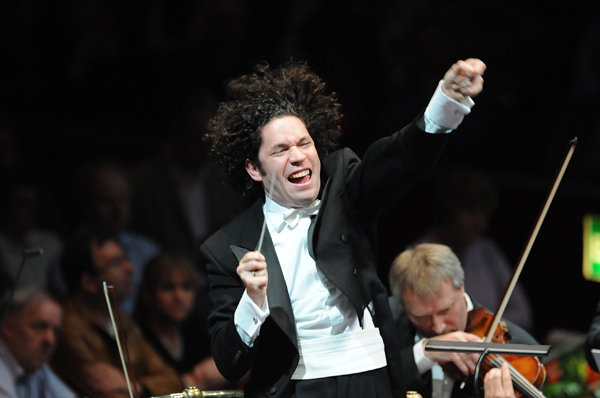








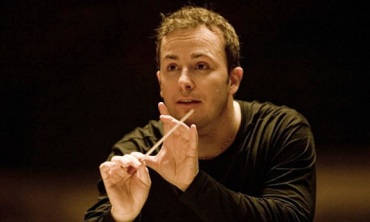



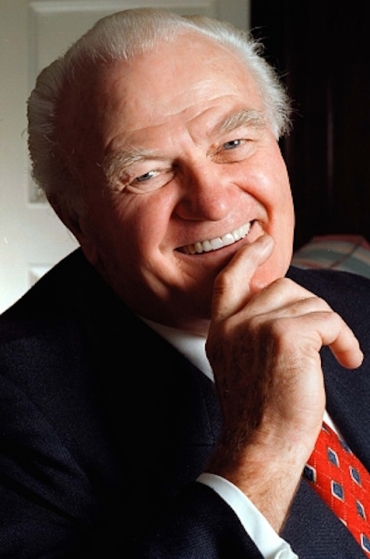






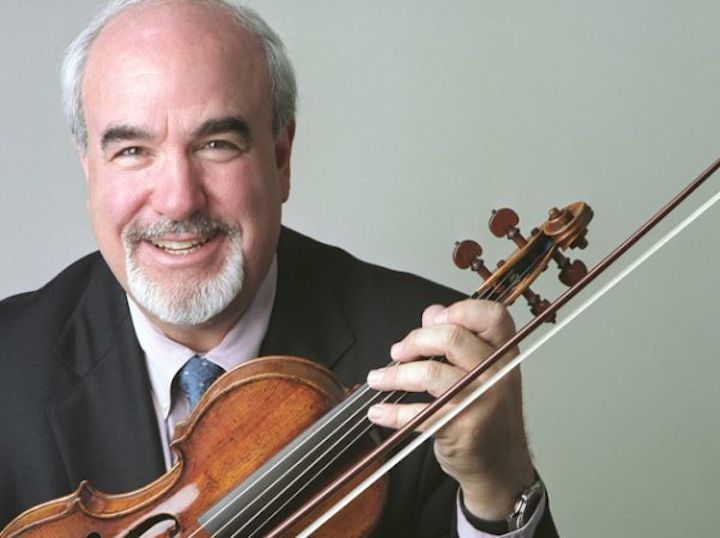
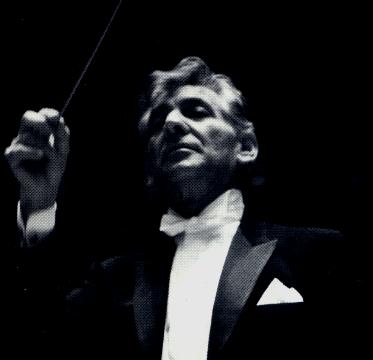







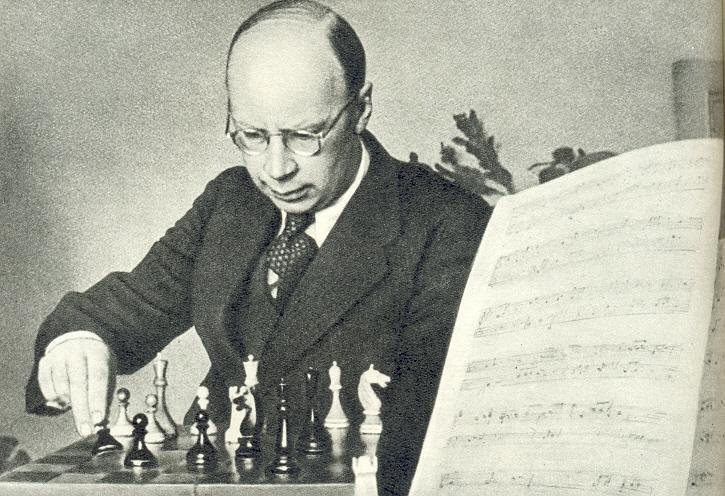







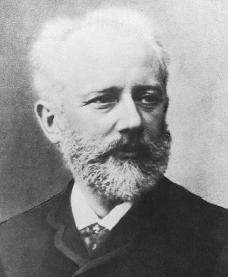

Today is the Winter Solstice. Here is a piece to make you look forward to longer days, warmth and the Summer Solstice next year
1 Comment
PLEASE HELP THE EAR. IF YOU LIKE A CERTAIN BLOG POST, SPREAD THE WORD. FORWARD A LINK TO IT OR, SHARE IT or TAG IT (not just “Like” it) ON FACEBOOK. Performers can use the extra exposure to draw potential audience members to an event. And you might even attract new readers and subscribers to the blog.
By Jacob Stockinger
Today – Monday, Dec. 21 — is the Winter Solstice, the longest night and shortest day of the year in the Northern Hemisphere. It arrives at 4:02 a.m. CST.
The Ear expects that Wisconsin Public Radio, among other media outlets, will be marking the event with traditional, often austere, winter music. That includes “Winter” from Vivaldi’s “The Four Seasons”; maybe some songs from Schubert’s “Winterreise” (Winter Journey); Peter Tchaikovsky’s “The Seasons” and “The Nutcracker”; and, of course, plenty of winter holiday music, including carols and the Baroque oratorios, cantatas and concertos by Bach, Handel, Telemann, Corelli and others.
But many people – strained by the coronavirus pandemic –are already eagerly looking forward to the days growing longer, which will culminate in the Summer Solstice at 10:31 p.m. CST on Sunday, June 21, 2021.
Who needs to celebrate the season’s cold and darkness? So The Ear thought that we could all use a little sonic sunlight, tonal warmth and musical hope, especially at the end of this Plague Year.
There are standards and favorites such as Mozart’s “Eine kleine Nachtmusik” and Vivaldi’s “Summer.”
But to The Ear that work that really lifts one’s spirits, and captures the kind of joyful abandon and youthful energy of the mid-summer event, complete with animal noises and romance, is the “Overture to a Midsummer Night’s Dream” by a 17-year-old Felix Mendelssohn (below).
You can hear it below in a YouTube performance by the Gewandhaus Orchestra of Leipzig conducted by the late, great German conductor Kurt Masur, whose son, Ken-David Masur, is the new music director and conductor of the Milwaukee Symphony Orchestra.
The Ear hopes you enjoy it.
What music would you like to hear or play to mark the Winter Solstice?
Leave a suggestion with your reason and, if possible, YouTube link in the Comment section.
The Ear wants to hear.
Share this:
Tags: #ALittleNightMusic, #AMIdsummerNight'sDream, #AntonioVivaldi, #ArcangeloCorelli, #BachCantatas, #BaroqueMusic, #BaroqueOratorio, #BlogPost, #BlogPosting, #CentralTime, #ChamberMusic, #ChoralMusic, #ChristmasConcerto, #ChristmasMusic, #ChristmasOratorio, #ClassicalMusician, #CoronavirusPandemic, #DanielHope, #EineKleineNachtmusik, #FacebookPost, #FacebookPosting, #FelixMendelssohn, #FranzSchubert, #GeorgeFridericHandel, #GeorgPhilippTelemann, #GewandhausOrchestra, #Handel'sMessiah, #HolidayMusic, #JacobStockinger, #Ken-DavidMasur, #KurtMasur, #LeipzigGermany, #MessiahOratorio, #MilwaukeeSymphonyOrchestra, #MusicDirector, #NorthernHemisphere, #PeterIlyichTchaikovsky, #PeterTchaikovsky, #PlagueYear, #StringMusic, #SummerSolstice, #TheEar, #TheFourSeasons, #TheSeasons, #TraditionalMusic, #VocalMusic, #WilliamShakespeare, #WinterJourney, #WinterSolstice, #WisconsinPublicRadio, #WolfgangAmadeusMozart, #YouTubevideo, A Little Night Music, A Midsummer Night's Dream, abandon, animal, Antonio Vivaldi, Arcangelo Corelli, arrive, Arts, audience, austere, Bach, Baroque, Baroque music, blog, Cantata, capture, Carol, celebrate, Central Time, Chamber music, choral music, Christmas Concerto, Christmas music, Christmas Oratorio, Classical music, classicalmusic, cold, comedy, comment, composer, concerto, conductor, Corelli, coronavirus, culminate, darkness, day, December, Early music, Eine Kleine Nachtmusik, energy, enjoy, event, expect, Facebook, Facebook post, Facebook posting, favorite, Felix Mendelssohn, forward, Franz Schubert, Georg Philipp Telemann, George Frederic Handel, German, Germany, great, Handel, heavy lifting, hemisphere, holiday music, hope, Jacob Stockinger, Johann Sebastian Bach, joyful, June, Ken-David Masur, Kurt Masur, late, Leipzig, Leipzig Gewandhaus Orchestra, like, link, longer, Madison, mark, media, Mendelssohn, Messiah, midsummer, Milwaukee, Milwaukee Symphony Orchestra, Monday, Mozart, MSO, Music, Music director, musical, night, noises, Northern Hemisphere, oratorio, Orchestra, outlet, Overture, pandemic, performer, Peter Ilyich Tchaikovsky, Peter Tchaikovsky, plague, Plague Year, play, post, posting, Radio, reader, Romance, Schubert, Season, Shakespeare, share, short, shorter, solstice, songs, sonic, spirit, standard, strain, string music, subscriber, summer, Summer solstice, Sunday, sunlight, symphony, tag, Tchaikovsky, teenager, Telemann, The Ear, The Four Seasons, The Seasons, today, tonal, traditional, United States, use, Vivaldi, vocal music, warmth, we, winter, Winter Journey, winter solstice, Winterreise, Wisconsin, wisconsin public radio, Wolfgang Amadeus Mozart, work, year, youthful, YouTube